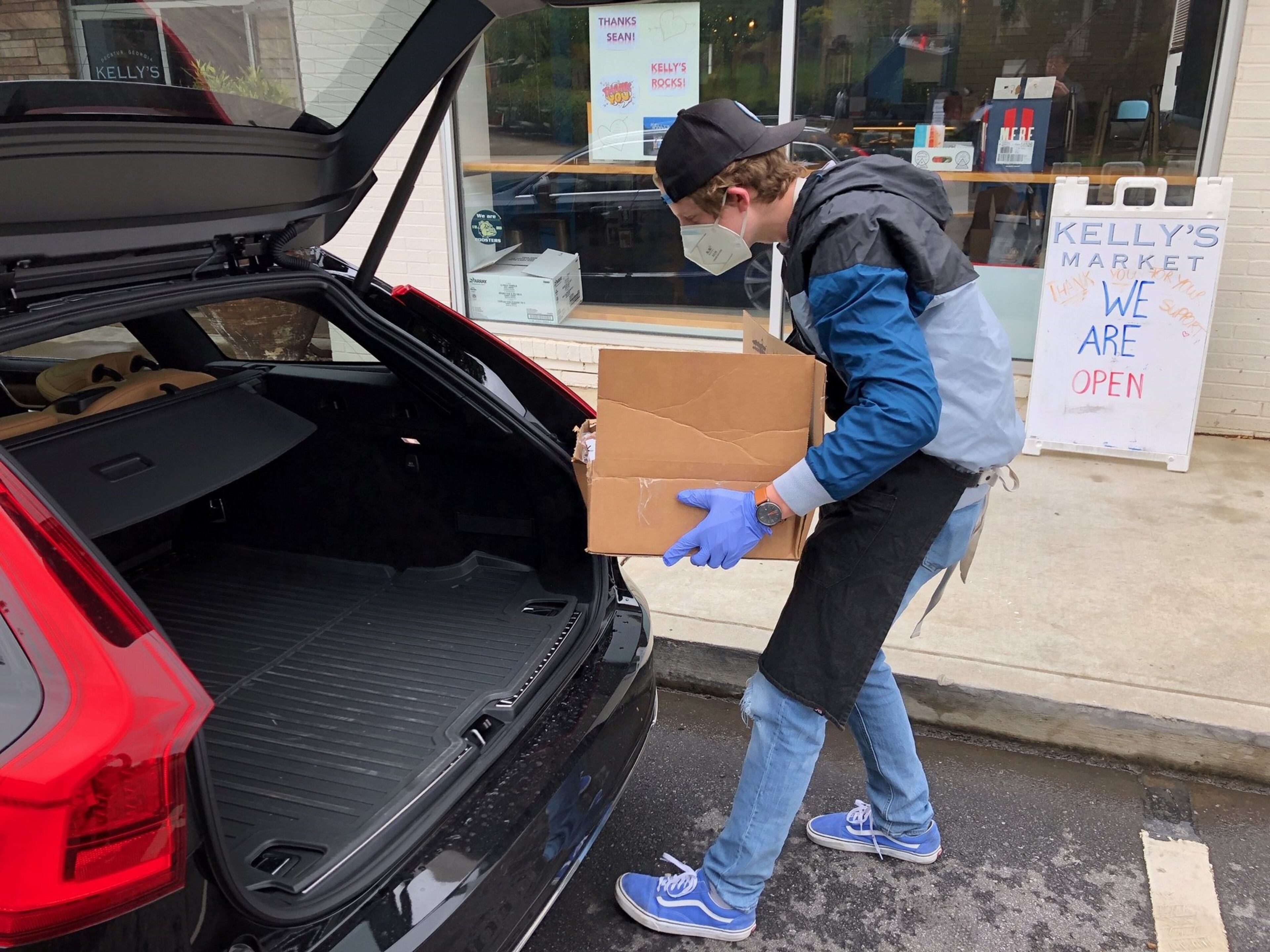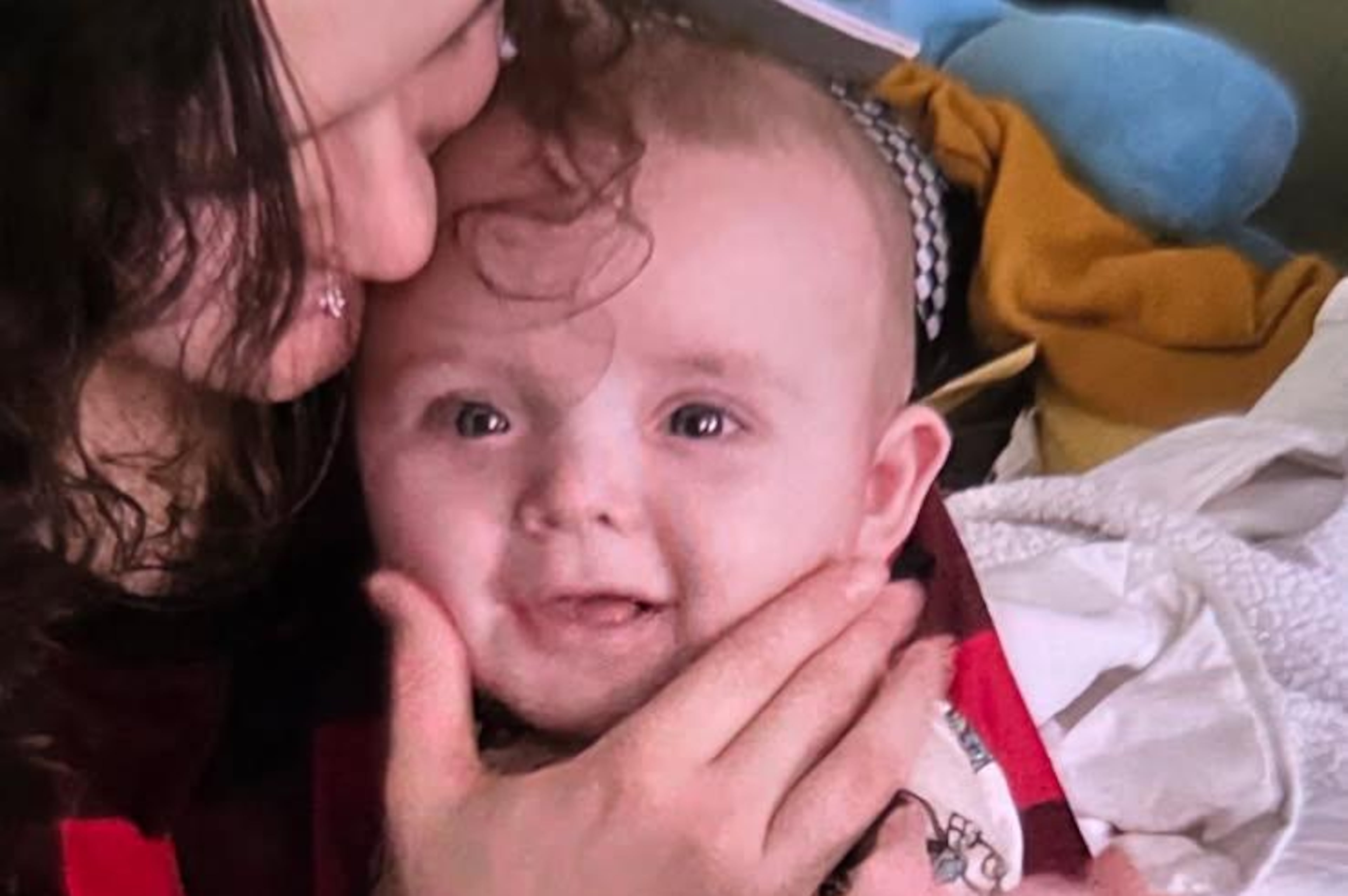Food couriers have a risky but satisfying job

It’s not the delivery that makes DoorDash driver Steven Broyles nervous. It’s the pickup.
You show up at Chipotle or McDonald’s or Mellow Mushroom, and there is your competition, drivers from GrubHub and Uber Eats and Postmates and from your own company, all jockeying for position at the pickup window.
“They try to keep the drivers separated, but it ends up with a mass of drivers at the doors,” said Broyles, a 25-year-old Avondale Estates resident.
Picking up your meal, and keeping that six-foot separation becomes a challenge. “I’m doing everything I can to protect myself personally from the water droplets, as they say,” said Broyles, who wears a mask, and uses hand sanitizer. (He also wore gloves until he ran out of gloves two weeks ago.)
“I recognize that no preventative measures are going to be 100 percent; there’s a lot of risk in what I’m doing, but at the same time, I can’t function and live the way I need to without any income.”
So Broyles, like thousands of other drivers in need of a paycheck, joins the food chain, bringing us supper, dodging the sneezes and hoping for the best.
The online food delivery business was already worth billions before the coronavirus pandemic suddenly turned these chow chauffeurs into frontline warriors. Today, as they thread their ways through the combat zone of metro Atlanta, they are cheered by social media and celebrated as heroes.

Governor Brian Kemp's April 20 decision to ease the shutdown and begin opening some businesses to regular commerce, including restaurants, might take some of the pressure off these food drivers, but many of them think that Atlantans are still too unnerved to eat out. "Honestly, most people think the stay-in-place order should be lasting longer than it is," said Tanner Crotty, who delivers groceries and sandwiches from his father's market in Decatur. "I'm expecting the same amount next week as this week."
In the era of COVID-19, when eateries have all shifted to take-out food, Broyles, Crotty and their colleagues provide a critical service. Not only are they bringing restaurant meals, but are also grocery shopping for those too nervous to go themselves.

There is good reason to be nervous. The United Food and Commercial Workers International Union estimated earlier this month that 30 grocery store workers have died of the coronavirus, and 3,000 have been impacted. Though most groceries mark their lanes to keep customers separated, the supermarket is the one place you are likely to come in contact with more potential carriers.
And yet food shopping is the one errand we can’t avoid. Unless we can get someone else to do it for us.
Kyle Ford, 29, of Conyers, recently switched from running DoorDash errands to doing Instacart work. Instacart shoppers receive grocery lists from customers through the Instacart app, and bring touch-free groceries to the doorstep.
An Instacart shopper must push a cart through the store as efficiently as possible because the more time you spend in the store, the less time you have to turn to the next customer. Ford said the app will guide you through the aisles. He’ll communicate with the customer to suggest alternatives if a product isn’t available.
Ford said he can shop for multiple customers at one store, and complete 12 to 17 orders in a day, “depending on how many items you’ve got. It can be a workout,” he said.
“I worked at a club before, as a bar manager,” he said. “I like this better. I have my freedom, and I can accept what I want to accept, and not accept what I don’t want to accept.”
Tips are a significant part of the paycheck. “Before COVID, the tips were not that great,” said Broyles, “but since then people are becoming a little more generous. They are understanding that the drivers are out there putting themselves more at risk.”
Ford said he’s already received a $20 tip and has heard them going as high as $40.
There is no online shopping at the very modest-sized Kelly’s Market. Tanner Crotty assembles a customer’s order over the phone and delivers it as a way to broaden the reach of the young business, which only opened last year. A tip is neither expected nor required, he said,
“I am more than happy to be able to help the community,” he said.
"I have not found one person yet who has not been in a peppy, bubbling mood," Crotty added. "They're jumping up and down when they see me. They get really excited, it's (sometimes) the only human interaction they have. I usually try to sit out there and shoot the BS with them for a while."
Occasionally, he’ll see a note left on the doorstep. A recent one read: “We are grateful that you are in our community!” Said Crotty, “Those little notes are what makes it.”

Food deliverers aren’t always admired. Last summer a survey by US Foods of 497 American adults who identified as having worked as a deliverer for at least one food delivery app found that 28 percent responded that they had tasted their customer’s meals.
That’s not something Broyles, Crotty or Ford have ever done, though a Grindhouse mushroom swiss burger came close to being irresistible for one of them.
Nor is every food delivery person happy about their treatment, which can include meager pay from the corporation and unreasonable clients. On the DoorDash sub-Reddit one commenter complained about customers who want the driver to fix a problem created by the restaurant. “I cannot demand a refund for you. I’m just a guy with a car. I cannot have your order remade or redelivered. I’m just a guy with a car,” wrote the commenter.
Then again, adjacent to the complaint is a photograph from another dasher showing a tray of snacks outside a door, with a sign reading “Dear Delivery People: Please Take One.”
“Some customers appreciate us,” they wrote.



